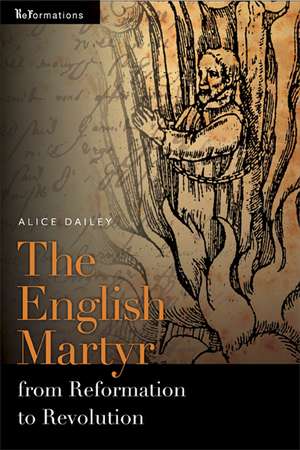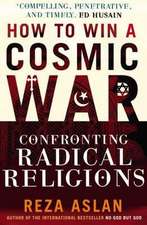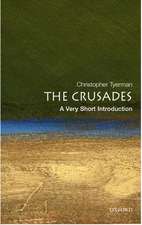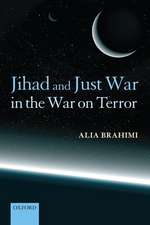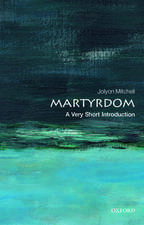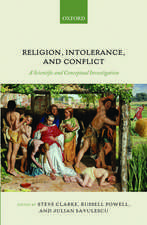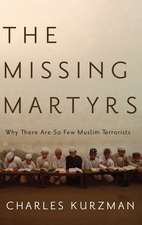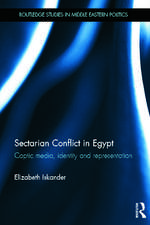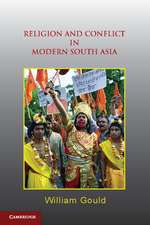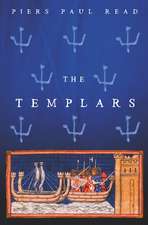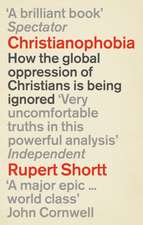The English Martyr from Reformation to Revolution: ReFormations: Medieval and Early Modern
Autor Alice Daileyen Limba Engleză Paperback – 14 dec 2012
Din seria ReFormations: Medieval and Early Modern
-
 Preț: 290.14 lei
Preț: 290.14 lei -
 Preț: 312.54 lei
Preț: 312.54 lei -
 Preț: 426.89 lei
Preț: 426.89 lei -
 Preț: 297.71 lei
Preț: 297.71 lei -
 Preț: 279.44 lei
Preț: 279.44 lei -
 Preț: 300.58 lei
Preț: 300.58 lei -
 Preț: 288.56 lei
Preț: 288.56 lei -
 Preț: 301.56 lei
Preț: 301.56 lei -
 Preț: 285.94 lei
Preț: 285.94 lei -
 Preț: 298.67 lei
Preț: 298.67 lei -
 Preț: 270.64 lei
Preț: 270.64 lei -
 Preț: 329.67 lei
Preț: 329.67 lei -
 Preț: 331.80 lei
Preț: 331.80 lei -
 Preț: 350.29 lei
Preț: 350.29 lei -
 Preț: 323.53 lei
Preț: 323.53 lei -
 Preț: 362.32 lei
Preț: 362.32 lei -
 Preț: 351.72 lei
Preț: 351.72 lei -
 Preț: 350.36 lei
Preț: 350.36 lei -
 Preț: 349.42 lei
Preț: 349.42 lei -
 Preț: 389.21 lei
Preț: 389.21 lei - 23%
 Preț: 459.67 lei
Preț: 459.67 lei
Preț: 272.55 lei
Nou
Puncte Express: 409
Preț estimativ în valută:
52.15€ • 54.59$ • 43.41£
52.15€ • 54.59$ • 43.41£
Carte tipărită la comandă
Livrare economică 31 martie-14 aprilie
Preluare comenzi: 021 569.72.76
Specificații
ISBN-13: 9780268026127
ISBN-10: 0268026122
Pagini: 350
Ilustrații: 6 halftones
Dimensiuni: 160 x 227 x 22 mm
Greutate: 0.48 kg
Ediția:1st Edition
Editura: MR – University of Notre Dame Press
Seria ReFormations: Medieval and Early Modern
ISBN-10: 0268026122
Pagini: 350
Ilustrații: 6 halftones
Dimensiuni: 160 x 227 x 22 mm
Greutate: 0.48 kg
Ediția:1st Edition
Editura: MR – University of Notre Dame Press
Seria ReFormations: Medieval and Early Modern
Notă biografică
Alice Dailey is associate professor of English at Villanova University.
Descriere
Traditionally, Christian martyrdom is a repetition of the story of Christ’s suffering and death: the more closely the victim replicates the Christological model, the more legible the martyrdom. But if the textual construction of martyrdom depends on the rehearsal of a paradigmatic story, how do we reconcile the broad range of individuals, beliefs, and persecutions seeking justification by claims of martyrdom? Observing how martyrdom is constituted through the interplay of historical event and literary form, Alice Dailey explores the development of English martyr literature through the period of intense religious controversy from the heresy executions of Queen Mary to the regicide of 1649. Through close study of texts ranging from late medieval passion drama and hagiography to John Foxe’s Acts and Monuments, martyrologies of the Counter-Reformation, Charles I’s Eikon Basilike, and John Milton’s Eikonoklastes, The English Martyr from Reformation to Revolution traces the shifting constructions of the martyr figure across Reformation England.
By putting history and literary form in dialogue, Dailey describes not only the reformation of one of the oldest, most influential genres of the Christian West but a revolution in the very concept of martyrdom. In late sixteenth- and early seventeenth-century England, she argues, martyrdom develops from medieval notions of strict typological repetition into Charles I’s defense of individual conscience—an abstract, figurative form of martyrdom that survives into modernity. Far from static or purely formulaic, martyrology emerges in Dailey’s study as a deeply nuanced genre that discloses the mutually constitutive relationship between the lives we live and the stories we tell.
“'Martyrdom is not a death but a story that gets written about a death.' From this simple yet profound premise, Alice Dailey takes us into a tour de force of historical formalism. Martyrdom, as Dailey brilliantly and delicately unpacks it, sits at the nexus of story and the material world. It works through both the suffering of the flesh and the shifting contours of narrative form. In a study that reaches across time (medieval to postmodern) and confessions (Protestant and Catholic), Dailey herself masterfully crafts a compelling story about the life of narrative. This book will naturally be of great value to students of early modern religion, but it will also fascinate anyone interested in how human lives—and the meanings of those lives—are shaped by, and lived through, narrative forms." —Kristen Poole, University of Delaware
"Alice Dailey’s innovative new study of English martyrology details the transformations undergone by the narrative forms, theological meanings, and visual imagery of sacred suffering in Reformation England. In the period stretching from the sixteenth century through the end of the English Civil War, the Catholic underground was stymied in its search for the glory of the martyrs by the rhetoric of treason wielded against them by the Protestant state, but periodically sustained by its own powerful and resilient treasury of religious narratives. In this broad and bracing study, Dailey conceives of the Catholic question in a pluralist manner, to include not only the fates of individual Catholics and Catholic communities, but also the survival of Catholic literary and architectural forms in post-Reformation England." —Julia Reinhard Lupton, The University of California, Irvine
